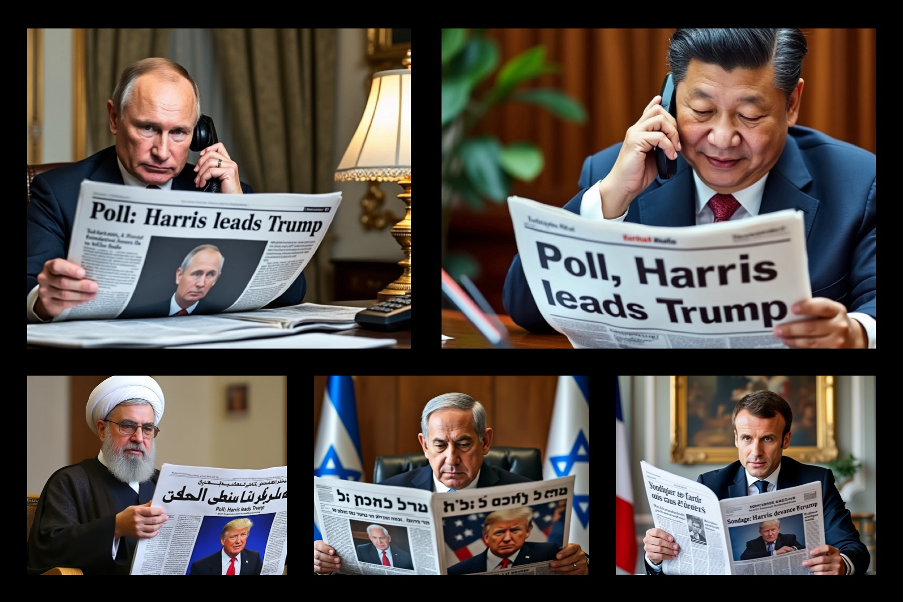Observations: Pokrovsk, polls & paradoxes
Allies & adversaries alike dislike Trump, shifting geopolitical risks in time
The geopolitical risk landscape is fast evolving outside the US, as I noted in “Events, my dear boy, events”, but the nearing of and lead changes in the US presidential election have altered the topography of risks, both inside and outside the US. The prospective return of Former President Trump, given his lead in the polls early this year, played a key role in my assessment of elevated pre-election geopolitical risks (see May you live in interesting times, Leitmotif 8). Consequently, the swing in the polls towards Vice President Harris changes the likelihood of those risks.
But, as I illustrated in my detailed analysis of US polls in And now the fun begins, there are clear signs of residual polling bias that imply the potential for a disruptive – and for most world leaders – unwelcome surprise on 5 November. An unexpected win by Mr. Trump both raises the risks of US political turmoil and shifts the incentives of Western adversaries as they face Trumpian Uncertainty after 20 January.
Complicating an already complex risk landscape, the Russian assault on the small city of Pokrovsk in Eastern Ukraine may upend everyone’s geopolitical calculus. The collapse of Pokrovsk – potentially within days – likely would hasten the conclusion of the two-year old war by opening the Southeastern front to Russian manoeuvre, paradoxically putting both Russia and Western European countries in a quandary if it occurs before the US election.




